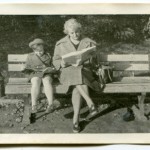I went back to the JAMA article I briefly mentioned in my last post; one of its most striking comments is that postoperative delirium is significantly under-diagnosed. The physicians and other staff taking care of surgical patients may miss connecting the dots correctly 80% of the time!
With that in mind, my wife and I decided each should, as a baseline, have a list of all the medicines the other is taking. If one of us needs a major operative procedure, the other can help prevent an episode of delirium in several ways.She handed me a list of her meds the next morning and said our dentist had wanted it the last time she was seen, so she had it put into her computer's word processing program. I finally got mine typed up this morning.
There are a number of other things we could do for each other and some our local hospital could start doing. Bringing in a familiar picture/photo from home, our bedside clock and perhaps a few other objects we see every day would help "de-sterilize" the hospital environment. Of course, if one of us were in an ICU we'd have to check what the rules are, but I'd push the envelope here.
Some hospitals have established senior units in their emergency departments, ICUs and wards. I can remember seeing a calendar with the day of the week, month and year during one of my postoperative stays in the past 13 years here (I've had a total knee replacement, two lower back surgeries and two cataracts removed). The JAMA article advocated a daily delirium check with diagnoses, evaluation and treatment detailed in the medical record.
Dimming the area's lights to maintain a "normal" day and night pattern can be helpful as can co-management of older patents by geriatrics specialists, intensivists or hospitalists, although, in my case, I'd like to see my primary care physician dropping by even if she had nothing to do with managing my care
Of the associated major risk factors: "advanced age" i.e., >70-75 years, preexisting dementia and functional disability, are crucial, but among surgical patents the procedure itself and the anesthesia used also play highly important roles (e.g., major heart and vascular procedures are far more likely to be associated with an episode of delirium than cataract surgery).



